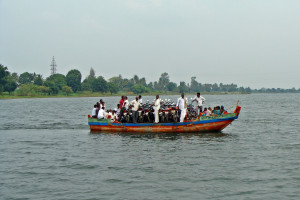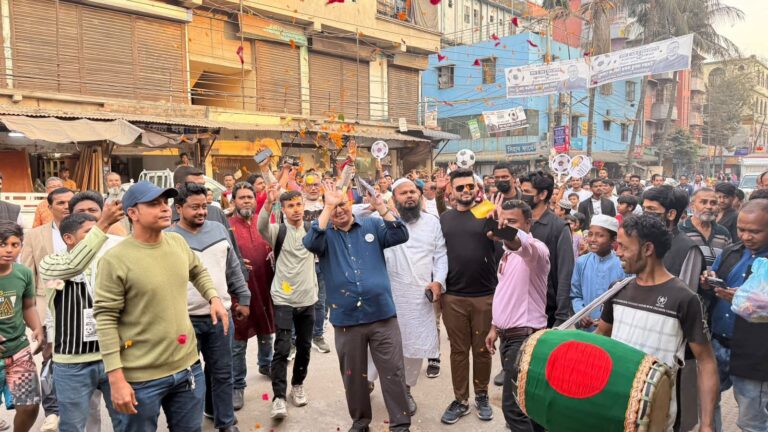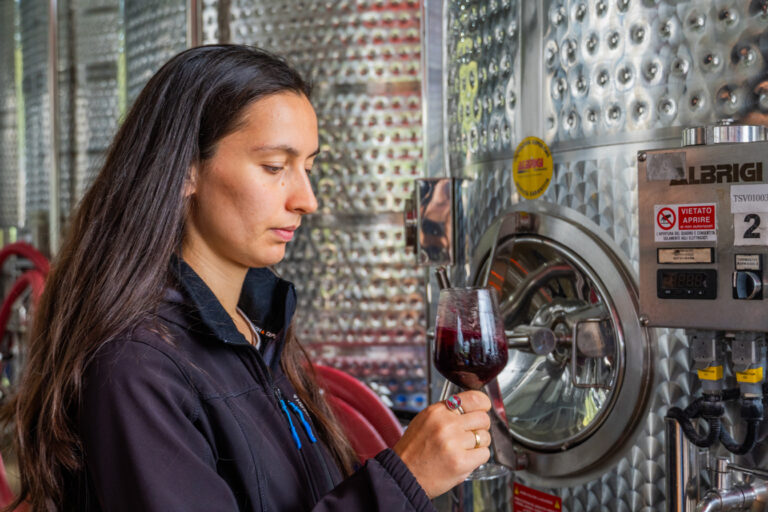
The fight over Krishna waters Part 1
 By T. Lakshminarayana*
By T. Lakshminarayana*
“Telangana government’s false propaganda is rejected by the Union Government”
Visakhapatnam: The Cold war like situation is prevailing between two Telugu speaking states on the issue of Krishna River water. So who are the culprits for this unhealthy, unwarranted situation between Andhra Pradesh and Telangana?
If political wisdom prevails no one can raise disputes with ulterior motives and intentions, which are already settled by Krishna River Water Disputes Tribunal-I, constituted under the Interstate Water Disputes Act -1956.
No responsible government dishonor, distort and violate the Tribunal Award which is in force. The Telangana state came into existence with Andhra Pradesh Reorganization Act -2014, but the funny thing is that the K Chandrasekhar Rao government in Telangana is not cooperating to implement the Part -IX (Management and Development of Water Resources), Section – 84 to 89 and the 11th Schedule of the Andhra Pradesh Reorganization Act -2014.
Also read: The fight over Krishna waters: The Telangana perspective
The then Andhra Pradesh state government issued G.O.Ms.No.69 on 15th June 1996. It was mentioned in the Reorganization Act that all the decisions taken and entered agreements by the erstwhile state of Andhra Pradesh are binding on the successor states. If both the governments are sincerely committed to implement the Tribunal Award, Reorganization Act and G.O.Ms.No.69, then there will be no dispute at all.
Water is a primary natural resource. Water gives life, employment, food to human beings. If rulers are not gentlemen, water can fuel disputes between riparian states.
The Nature endowed Andhra Pradesh and Telangana with two major inter-state Rivers — Krishna and Godavari. After bifurcation Telangana state is rightly claimed as second richest state among the Indian states. It reached to that level because of Hyderabad. It was developed as a world class city during the period of erstwhile Andhra Pradesh. No one can dispute this.
Andhra Pradesh’s economy is predominantly agriculture based on irrigation utilizing river waters. Krishna and Godavari river waters are life line to both the states, more particularly to Andhra Pradesh. As a lower riparian state in Krishna river basin, Andhra Pradesh is facing serious challenges in getting rightful share in Krishna river waters. As a result, the future of the perennial drought prone Rayalaseema region has become big question and the people’s “right to live” has been endangered.
The Krishna Water Disputes Tribunal -I, also known as Bachawat Tribunal was constituted by the Union Government on 10th April 1969 under the Inter State River Disputes Act -1956. It determined the available water in Krishna River as 2060 TMC at 75% dependability. The Tribunal followed the legal principle, “First in Time, First in Right” and allotted water to all the projects sanctioned by the Planning Commission until September 1960, which were in operation or under construction. On this basis a quantity of 749.16 TMC was allocated under protective utilization to the erstwhile Andhra Pradesh state before it was bifurcated into two states. And, as a special case 17.84 TMC for Jurala Project and 33 TMC towards evaporation losses at Srisailam Reservoir was allotted and no more allocation for any new scheme was made.
The Bachawat Tribunal has given allocation under protective uses to major and medium projects, that is, Krishna Delta, Kurnool Cuddapah Canal, Tungabhadra High Level Canal and Low Level Canal, Rajolibanda Diversion Scheme (RDS), Nagarjuna Sagar, Musi, Paleru, Wyra, Koil Sagar, Dindi, Muniyeru, Jurala(New) and drinking water to Hyderabad and to some more medium Schemes and Minor Irrigation. As a result, 800 TMC to the erstwhile Andhra Pradesh, 560 TMC to Maharashtra, 700 TMC to Karnataka were allotted by the Tribunal-I. It also specifically emphasized that these assured water allocations cannot be disturbed in future reviews. And, out of the return flows erstwhile Andhra Pradesh was allocated 11 TMC with that total allocation is 811 TMC. The Award came into force from 1st June 1976.
So what was the fate of projects on which construction started based on surplus water by erstwhile Andhra Pradesh?
Apart from 75% dependable water share the erstwhile Andhra Pradesh State was permitted by the Bachawat Tribunal to utilize surplus water without acquiring any right. Utilizing this freedom to use the surplus water, the erstwhile Andhra Pradesh government commenced the construction of Telugu Ganga, Galeru – Nagari, Handri – Neva, Velugonda, Srisailam Left Bank Canal (SLBC), Kalvakurthi, and Nettampadu projects in 1980’s, 1990’s and 2020’s. Now, they are under construction at various stages.
The Union Government constituted the 2nd Krishna River Water Disputes Tribunal under the Chairmanship of Justice Brijesh Kumar on 2nd April 2004. The Brajesh Kumar Tribunal gave its final verdict on 29th November 2013. The Tribunal -II ignored the freedom of Andhra Pradesh to utilize surplus waters as given by Tribunal-I. The Tribunal-II estimated the available water at 65% dependability and also further surplus flows and allotted to all three riparian states. It was contested by erstwhile Andhra Pradesh government which filed special leave petition in the Supreme Court.
After bifurcation Telangana state also filed impleading petition in this case. Now the case is pending before the Supreme Court. As a result, the Tribunal-I i.e., Bachawat Tribunal Award is in force. In this background, the state was divided.
All the projects which are under construction to utilize surplus water except SLBC were listed in the Schedule 11(10) of Andhra Pradesh Reorganization Act -2014. It was mandated that “the following irrigation projects which are under construction shall be completed as per the plan notified by the existing State of Andhra Pradesh and the water sharing arrangement shall continue as such: – (i) Handri – Niva, (ii) Telugu Ganga, (iii) Galeru – Nagiri, (iv) Velugondu, (v) Kalvakurthi, (vi) Nettempadu.”
Coming to the A.P. Reorganization Act -2014, it would be apt to quote its 11th Schedule which is self-explanatory. Here it goes:
“Principles governing the functioning of the River Management Boards.
1. The operation protocol notified by the Ministry of Water Resources with respect to water resources arrived at based on appropriate dependability criteria after the adjudication by the Krishna Water Disputes Tribunal shall be binding on both the successor States.
2. In the event of conflicting demand of water for irrigation and power, the requirement of water for irrigation shall take precedence.
3. In the event of conflicting demand of water for irrigation and drinking water, the requirement of water for drinking water purpose shall take precedence.
4. The allocations made by the River Water Tribunals with regard to various projects on Godavari and Krishna Rivers or for the regions of the existing State of Andhra Pradesh, in respect of assured water shall remain the same.
5. Allocations, if any, to be made on excess flows by any Tribunal in future shall be binding on both the State of Telangana and the successor State of Andhra Pradesh.
6. While the successor State Governments shall be responsible for managing natural calamities, the Boards shall advise the two State Governments on the management of disaster or drought or flood in the rivers of Krishna and Godavari, particularly in reference to the release of water for the management and mitigation of the natural calamities. The Boards shall have the full authority to get their orders implemented by the two successor State Governments promptly and effectively in respect of operation of the head works of the dams, reservoirs or head works of canals and works appurtenant thereto including the hydel power projects, as notified by the Central Government, on Krishna and Godavari Rivers.
7. No new projects based on water resources arrived at based on appropriate dependability criteria on Godavari or Krishna rivers can be taken up by the State of Telangana or the State of Andhra Pradesh without obtaining sanction from the Apex Council on River water resources. All such proposals shall be first appraised and technically cleared by the respective Board, before sanction by the said Apex Council.
8. Execution of ongoing projects and future new projects on Godavari and Krishna rivers shall be the responsibility of the State Government concerned where the project is located.
9. In case of non-implementation of the decision by either of the States, the defaulting State shall bear the responsibility and shall face financial and other penalties imposed by the Central Government.”
There will not be any objection if both the states fight for their justifiable rights in the use of both Krishna and Godavari River waters, while honouring, binding and implementing:
– the Award of the Bachawat Tribunal which is in force today
– the Andhra Pradesh Reorganization Act -2014 and
– the G.O. issued by the erstwhile Government of Andhra Pradesh on 15th June 1996 on Operation Rules for Srisailam and Nagarjunasagar Reservoirs.
This is the way to resolve the major issues.
As per Part – IX, Section 84 of the A.P. Reorganization Act -2014, the Central Government constituted Apex Council with the Minister of Jala Shakti, Government of India as Chairperson, Chief Minister of Andhra Pradesh and Chief Minister of Telangana as Members for the supervision of the functioning of the Godavari River Management Board and Krishna River Management Board.
It was categorically mentioned in the A.P. Reorganization Act -2014 that “making an appraisal of any proposal for construction of new projects on Godavari or Krishna rivers and giving technical clearance, after satisfying that such projects do not negatively impact the availability of water as per the awards of the Tribunals constituted under the Inter-State River Water Disputes Act, 1956 for the projects already completed or taken up before the appointed day”.
It was also assured “reference of any disputes not covered under Krishna Water Disputes Tribunal, to a Tribunal to be constituted under the Inter-State River Water Disputes Act, 1956”.
Apex Council met twice in the wake of complaints from both the states. The first meeting was held on September 21, 2016 on the advice of the Supreme Court and the second meeting was held on October 6, 2020. They discussed complaints and took some decisions.
The joint meeting of officials was held on June 18th 2015. The minutes were signed by the Additional Secretary, Union Ministry of Water Resources, Chief Secretaries of Andhra Pradesh and Telangana Irrigation Departments. In the minutes it was categorically mentioned that on the basis of the Bachawat Tribunal allocations and after considering the two adjustments made by the erstwhile Andhra Pradesh state government, 20 TMC for Bhima Project and 19 TMC for Srisailam Right Branch Canal (SRBC), it was decided to utilize Andhra Pradesh 512 TMC and Telangana 299 TMC.
A list of water allocations as project wise is also attached to the signed minutes. That decision was appropriate. But after six years of implementation, the Telangana government is trying to distort and demanding the share of 50:50 and appointment of new Tribunal. In fact, the modernization of Krishna Delta has not completed even 50%, but out of the 29 TMCs saved by the modernization 20 TMC have been adjusted to the Bhima project, which falls in Telangana state.
Telangana state government filed a petition before the Supreme Court seeking direction to Union Government on constituting of New Tribunal. Also demanded Union Government in the second Apex Council meeting.
When the Special Leave Petition on the Brajesh Kumar Tribunal Award is pending before the Supreme Court will it be possible to appoint a new Tribunal as per the Interstate River Water Disputes Act – 1956?
There are four riparian states in the Krishna River basin. Will the states of Maharashtra, Karnataka and Andhra Pradesh agree? Is it possible to appoint a tribunal only for two Telugu states?
That’s why the Central Government is studying the issue legally. It’s very clear that the demand of 50:50 share of water is merely a political demand. It cannot be implemented. Because, the Tribunal constituted under the Interstate River Disputes Act -1956 can only allocate Water, not by any Court or Central Government or Apex Council or Management Board.
The Second Apex Council meeting decided to submit Detailed Project Reports (DPRs) for projects not approved by the Central Water Commission (CWC) and which are not included in Schedule 11(10) of the Andhra Pradesh Reorganization Act-2014. Among them are the Palamuru – Rangareddy LIS and Rayalaseema LIS and as well as other projects under construction or proposed schemes on the Krishna and Godavari rivers. That decision was not implemented by both the state governments.
Moreover, the Telangana government has become a litigant and writing letters to the KRMB complaining against KC Canal, Velugonda, Handri Neeva, Telugu Ganga, and Garelu-Nagari to create a false opinion and hurdles. It’s good that the Telangana government’s false propaganda was rejected by the Union Government by including Pothireddypadu Head Regulator in the Gazette notification in the approved category.
Shift KRMB Office to Kurnool
According to the Section 85 (2) of the Andhra Pradesh Reorganization Act-2014, the office of the Godavari River Management Board should be set up in Telangana and the office of the Krishna River Management Board in Andhra Pradesh. Six years after the formation of the Management Boards, both the Krishna and Godavari Management Boards are still operating from Hyderabad. This is a strong indication of the negligence of the Union Government. The Andhra Pradesh government’s recommendation to shift the Krishna River Management Board office to Visakhapatnam is highly condemnable. Visakhapatnam is not in the Krishna River basin. So, the A.P. government should unconditionally withdraw the earlier proposal and recommend to shift the Board office to Kurnool, which is centrally located in the basin and also convenient for both the states.
Gazette notification
The Union Government issued Gazette notification on 15th July, 2021 notifying the River Management Boards Jurisdiction. It will come into force from 14th October. The notification was issued after delaying six years of the formation of Management Boards. As a result, clashes broke out between the two states. Once Police from two states clashed at Nagarjuna Sagar. Once such conflict prevailed at Srisailam. The minimum Draw Down Level (MDDL) is 834 feet at Srisailam Reservoir. But the Telangana government generated Hydro Power when the water level in Srisailam reservoir was below 800 feet. Krishna River Management Board twice ordered to stop the Hydro Power generation. But those orders were not honored by the Telangana government. More over deployed police and continued power generation at Srisailam, Nagarjunasagar and Pulichinthala. In this background the Gazette Notification is a welcoming decision by the Union Government.
As per the Awards given by the tribunals on the Krishna and Godavari River waters, all the major and medium projects allotted 75% dependable water have been mentioned in the Schedule-I of the Gazette. Also, the projects mentioned in the Andhra Pradesh Reorganization Act-2014 Schedule-11(10) are also mentioned in the Gazette except Velugonda. The mistake regarding Velugonda should be rectified immediately. Because using this Telangana State government wrote letters to Krishna River Management Board and Union government demanding to stop the construction. If at all it is agreed then the same principle will also apply to SLBC, Kalwakurthi LIS and Nettampadu LIS. Their construction should also be stopped.
One should understand the Central Water Commission (CWC) cannot issue clearance to any project without the allocation of dependable water. But on all those projects construction was started by the erstwhile Andhra Pradesh state government on the basis of surplus water got Environmental and forest clearances from the concerned departments. The Union Government extended the tenure of the Brajesh Kumar tribunal and asked to find a solution for the projects under construction without water allocations. The Brajesh Kumar Tribunal is conducting the hearing.
Amendments to the Gazette Notification
1) Water is drawn from Srisailam Reservoir through Pothireddypadu Head Regulator for drinking water to Chennai, irrigation water to SRBC, Telugu Ganga, Galeru – Nagari, and KC Canal (Nippulavagu). So, the Management Board jurisdiction should be confined to Pothireddypadu Head Regulator only. “Banakacherla Cross Regulator, SRBC Main Canal up to Owk, Velugodu Reservoir, Nippulavagu – Santajutoor Dam” should be excluded.
2) The Tungabhadra Board is monitoring the release of water to High Level Canal, Low Level Canal and Rajolibanda Diversion Scheme. So, these projects should be exempted from KRMB jurisdiction. Accordingly, gazette should be amended.
3) Velugonda project was mentioned in the Andhra Pradesh Reorganization Act-2014 Schedule-11(10). By mistake it was not referred in the Gazette Notification. So, it should be rectified immediately.
*The Writer is the Convenor of Study Centre for Integrated Development of Andhra Pradesh






While the demands of Telanga govt.is absurd, does the scheme of Rayalaseema Lift Irrigation not violative of G.O 69, which clearly stipulates that water should not be be drawn to SRBC, TELUGU GANGA etc below the level of 854 feet in Srisailam reservoir.?Both the govt. are playing to the gallery, ignoring the interests of drought prone Rayalaseema and South Telangana.While hundreds of TMC of water is wasted in sea these political cheats instead of storing that water,using the miseries of the people to preserve their power.